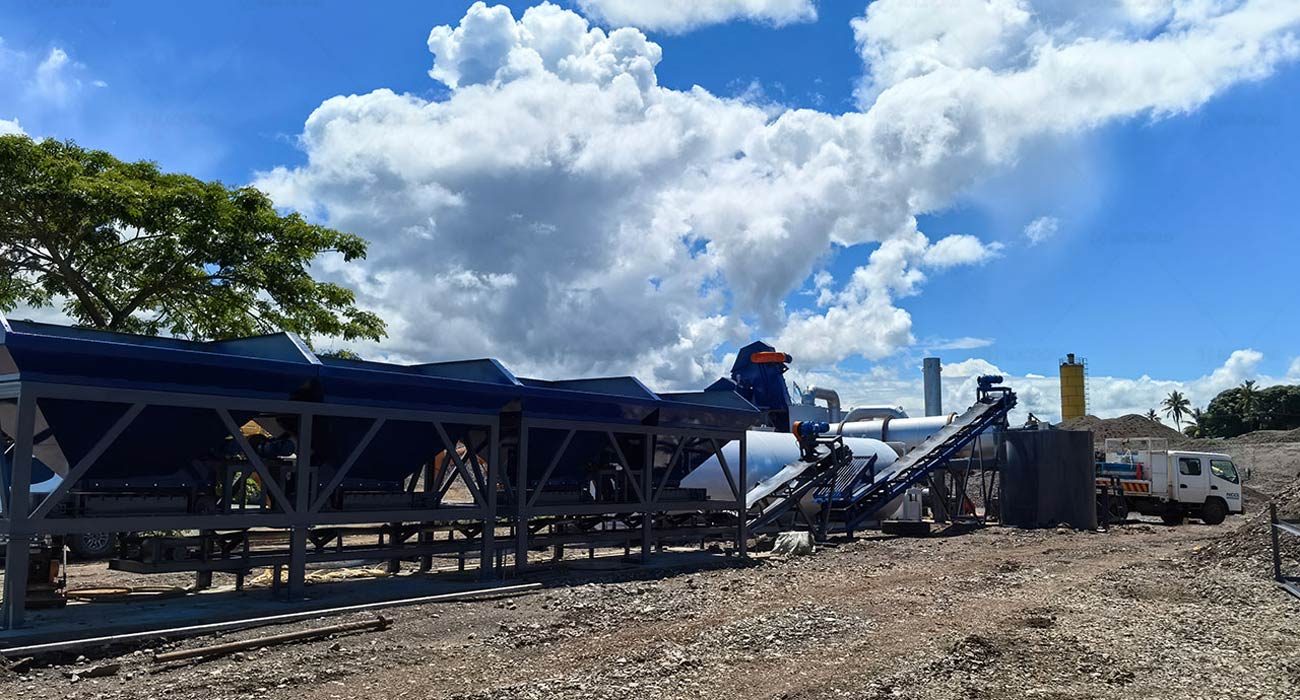Asphalt plants operating in high-humidity rainforest environments face unique challenges, primarily due to the accelerated corrosion of equipment and structures. The combination of high moisture levels, frequent rainfall, and warm temperatures creates an ideal setting for corrosion, leading to costly repairs and operational downtime. Implementing effective anti-corrosion technologies is crucial for ensuring the longevity and efficiency of these plants. This article explores the key anti-corrosion strategies that can be employed in asphalt plants situated in such demanding conditions.

Understanding the Corrosion Challenge
Corrosion is a significant threat to asphalt plants, particularly in rainforest environments where humidity can reach extreme levels. The presence of moisture not only accelerates the degradation of metal components but also promotes the formation of rust and other corrosive agents. For instance, steel silos and mixing equipment in a fixed asphalt plant may suffer from pitting and structural failure if not adequately protected.
Mobile asphalt plants are equally vulnerable, as they frequently operate in various locations within these humid regions. The constant exposure to moisture can lead to accelerated wear and tear, ultimately affecting the quality of the asphalt produced. Therefore, understanding the unique challenges posed by high-humidity environments is essential for implementing effective anti-corrosion measures.

Advanced Coating Solutions
One of the most effective anti-corrosion technologies for asphalt plants is the use of advanced coating solutions. These coatings act as a barrier between the metal surfaces and the corrosive elements present in the environment. High-performance epoxy and polyurethane coatings are particularly beneficial, as they provide excellent adhesion and resistance to moisture.
For example, applying a high-quality epoxy coating to the exterior of silos and mixing equipment can significantly extend their lifespan. These coatings not only protect against corrosion but also resist abrasion and chemical attacks from the materials being processed, such as asphalt and aggregates. Furthermore, periodic inspections and maintenance of these coatings ensure they remain intact, providing ongoing protection against the harsh conditions present in rainforest environments.
Structural Design Considerations
In addition to coatings, the structural design of asphalt plants plays a critical role in mitigating corrosion risks. Designing for proper drainage is essential; any water accumulation around equipment can accelerate corrosion. For instance, incorporating drainage channels and sloped surfaces in both fixed and mobile plants can help direct moisture away from critical components.
Moreover, using corrosion-resistant materials in the construction of asphalt plants can further enhance durability. Stainless steel and galvanized components are excellent choices for areas prone to corrosion, as they offer superior resistance compared to traditional carbon steel. By prioritizing these materials in the design and construction phases, operators can significantly reduce the likelihood of corrosion-related failures.

Maintenance Strategies for Longevity
Additionally, operators can adopt a proactive maintenance schedule that includes routine cleaning of surfaces to remove contaminants that may contribute to corrosion. For example, mobile asphalt plants can benefit from regular wash-downs to remove accumulated debris and moisture, preserving the integrity of protective coatings.
Furthermore, investing in training for maintenance personnel ensures that they are equipped with the knowledge to recognize and address corrosion issues effectively. This commitment to ongoing education and training fosters a culture of proactive maintenance, ultimately extending the lifespan of the plant.

Conclusion
In conclusion, anti-corrosion technology is vital for the successful operation of asphalt plants in high-humidity rainforest environments. By understanding the challenges posed by corrosion, implementing advanced coating solutions, designing for proper drainage, and adopting proactive maintenance strategies, operators can significantly enhance the durability and efficiency of their plants. As the demand for asphalt continues to grow, prioritizing anti-corrosion measures will be crucial for ensuring long-term success and minimizing operational disruptions. By investing in these technologies and practices, asphalt plant operators can confidently navigate the challenges of high-humidity environments, ensuring the quality and reliability of their products.
Tags: AsphaltPlant Asphaltmixplant